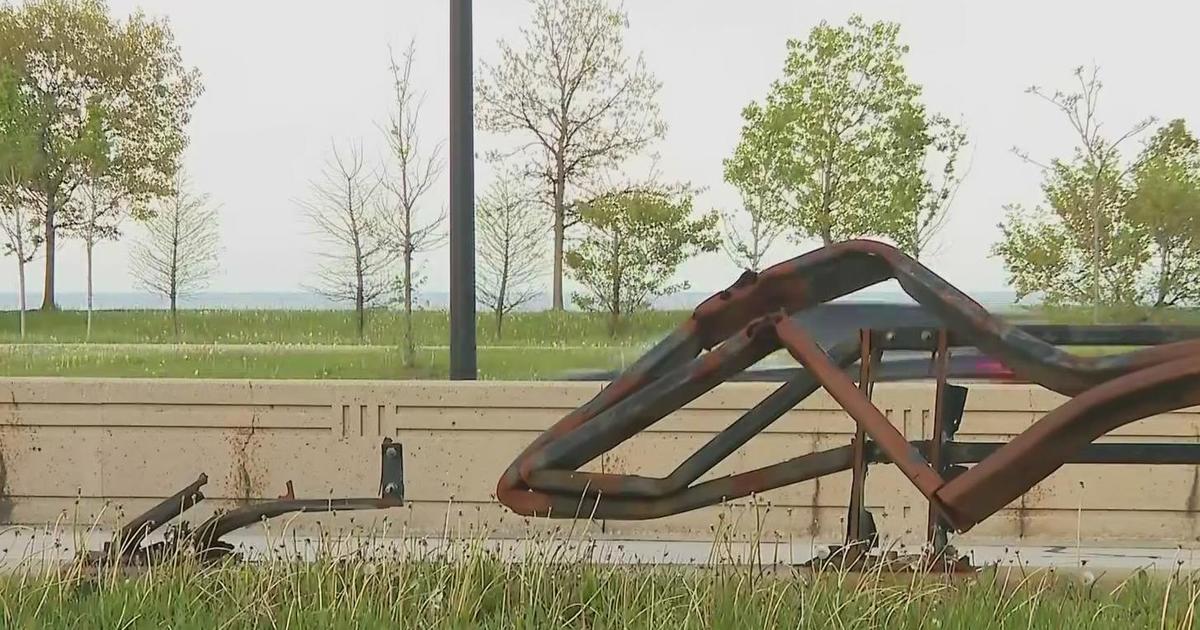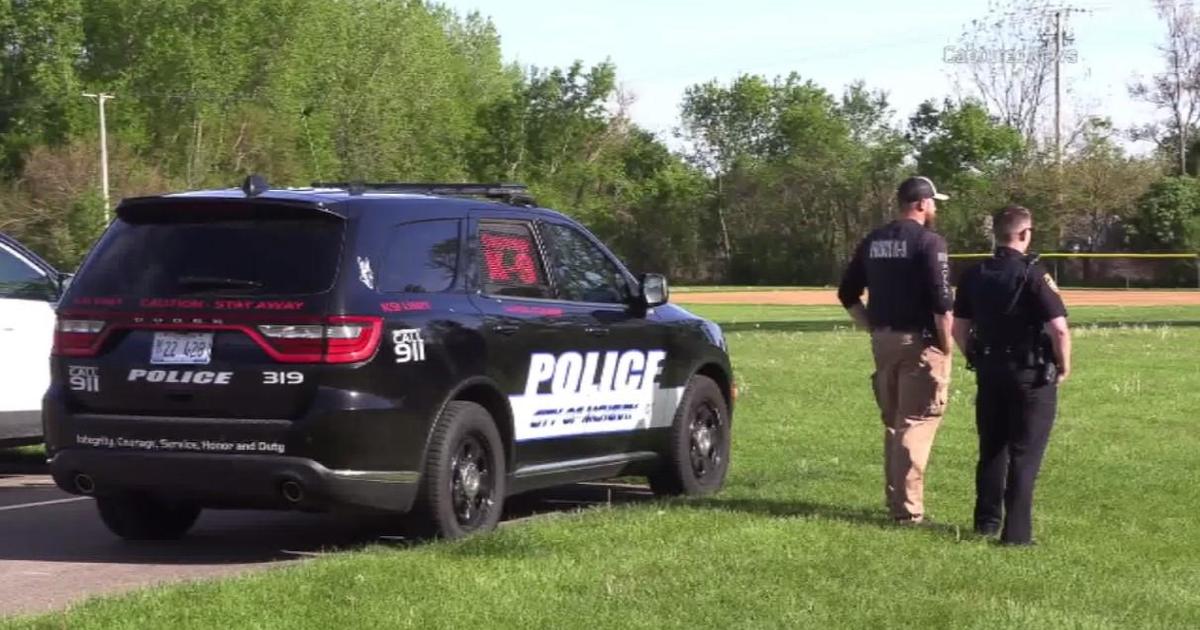Freight train worker strike could cause massive supply chain crisis as well as halt commuter trains
CHICAGO (CBS) -- Thirty percent of all the items transported in the U.S. is shipped by train – and come Friday, those trains could stop dead in their tracks.
The trains carry everything from the food on your dinner table to this year's Halloween costume – and the pending national freight rail strike could create massive issues with the supply chain and delay it all.
It will also be disruptive to Metra commuters – and is already disrupting Amtrak travelers.
Ttwo unions -- SMART and the Brotherhood of Locomotive Engineers and Trainmen (BLET) -- remain at odds with the railroads over attendance policies that workers claim are being used to fire and otherwise discipline railroad crews for absences that are due to medical appointments and bereavement
As CBS 2's Chris Tye reported, a strike could begin as soon as Friday.
If it does, Metra is warning commuters that the majority of their lines won't run – since they operate on railways owned by freight companies.
The BNSF, Union Pacific North, Union Pacific Northwest, and Union Pacific West Metra lines are on tracks owned and directly operated by freight train companies. Five others intersect with tracks owned by freight partners are dispatched by freight railroads.
The only lines Metra owns, operates, and controls – and that thus would be certain to keep running – are the Metra Electric and Rock Island lines.
Amtrak is already canceling a total of 10 long-distance routes beginning Wednesday due to the looming labor dispute. The Southwest Chief from Chicago to Los Angeles, the California Zephyr from Chicago to the San Francisco Bay Area, and the Empire Builder from Chicago to Seattle, have all already been canceled.
Now added to the list are the City of New Orleans from Chicago to New Orleans; the Lake Shore Limited from Boston or New York to Chicago; and the Texas Eagle from San Antonio to Chicago, Amtrak announced. These lines will all be canceled Wednesday.
Also canceled effective Wednesday are the Coast Starlight from Seattle to Los Angeles, the Crescent from New York to New Orleans, the Silver Star from New York to Miami, and the Sunset Limited from Los Angeles to New Orleans.
Meanwhile, as commuters create backup plans, dozens of industries are preparing to backed into a corner. One in every four items shipped in the U.S. come through Chicago, and Illinois has the second most lines of track in the U.S., behind Texas.
If the strike goes ahead, most trains in this country would stop including - those shipping grain, fruits and vegetables, coal, and chlorine to keep our water clean.
We have not had a strike like this since the early 1990s.
Insiders do not expect the situation to get to a Friday strike. But if it happens, it would be the job of Congress to mediate through it - and there isn't much hope inside the industry given the current political climate.
Meanwhile, a total of 25 percent of all goods shipped in the U.S. come through Chicago. Illinois has the second most lines of track in the U.S., behind Texas.
First to feel it would be farmers trying to ship fruits and vegetables this harvest season. Chlorine shortages to keep tap water clean would be next.
Later, car shipments would feel the pinch – and that is an industry just catching up from the pandemic and chip shortages.
"A day or two, as we said, it's not something that we're going to feel that much," said Washington University St. Louis business professor Panous Kouvelis. "But if we start talking about a week, or two weeks, or three weeks, it's going to be really serious."
We have not had a strike like this since the early 1990s.
Insiders do not expect the situation to get to a Friday strike. But if it happens, it would be the job of Congress to mediate through it - and there isn't much hope inside the industry given the current political climate.
It will be really serious for the average consumer, experts said.
"What consumers may be faced with is empty store shelves - and rising prices for the goods that remain on the shelves," said Neil Bradley, executive vice president and chief policy officer of the U.S. Chamber of Commerce.
Rachel Premack, editorial director of supply-chain market research company FreightWaves, summed it up in a tweet: "If you use Amtrak or Chicago's Metra, eat bread or corn, buy things from Amazon, or enjoy the idea of new homes being built, you should be worried about the impending rail strike."
The last rail strike was in 1992. Congress can step in, but U.S. Sen. Dick Durbin (D-Illinois) said that is not the way to solve the dispute.
"I don't believe that's a good idea," Durbin said. "I believe that the unions, as well as the railroads, should step up to the plate and get this done quickly."
If it doesn't get done -- store shelves could get sparse once again - and prices could spike. And if it goes on too long, workers in other sectors could be idled.
"You're talking about factory shutdowns," Bradley said, "and so this is not just going to have an inconvenience for consumers. At some point, we start to quickly see the trickle down - and other people losing their jobs - because of this national rail strike."
A cooling off period between the two sides ends Friday. If that period ends, and there is no deal, Congress doesn't step in, or the cooling off period doesn't get extended, the strike may go ahead.
Trains carrying hazardous materials were being moved Tuesday night so that come Friday, they won't be out in the open and become a potential target.
When we asked our insiders the likelihood of the strike going ahead, they put it around 10 to 20 percent.




